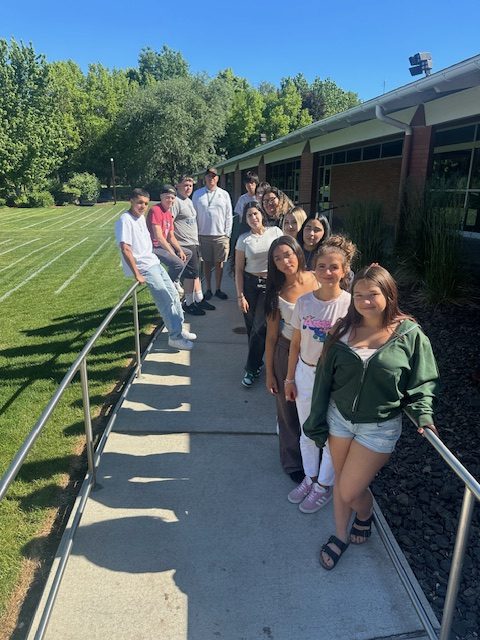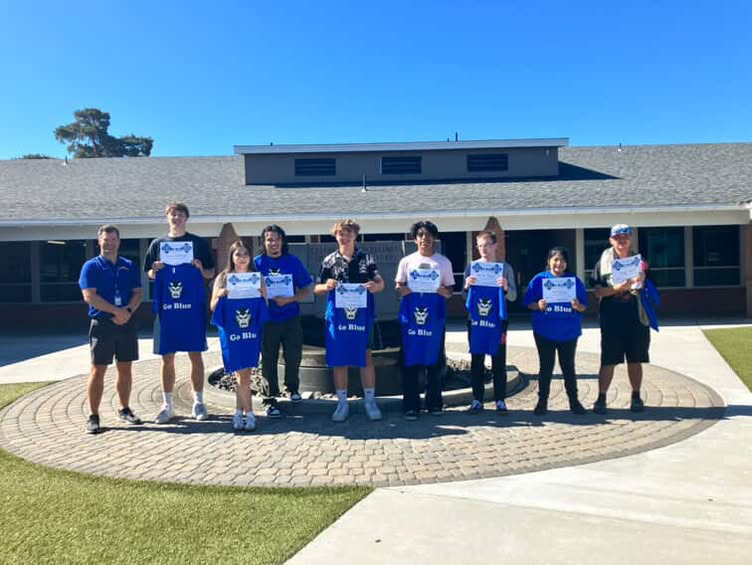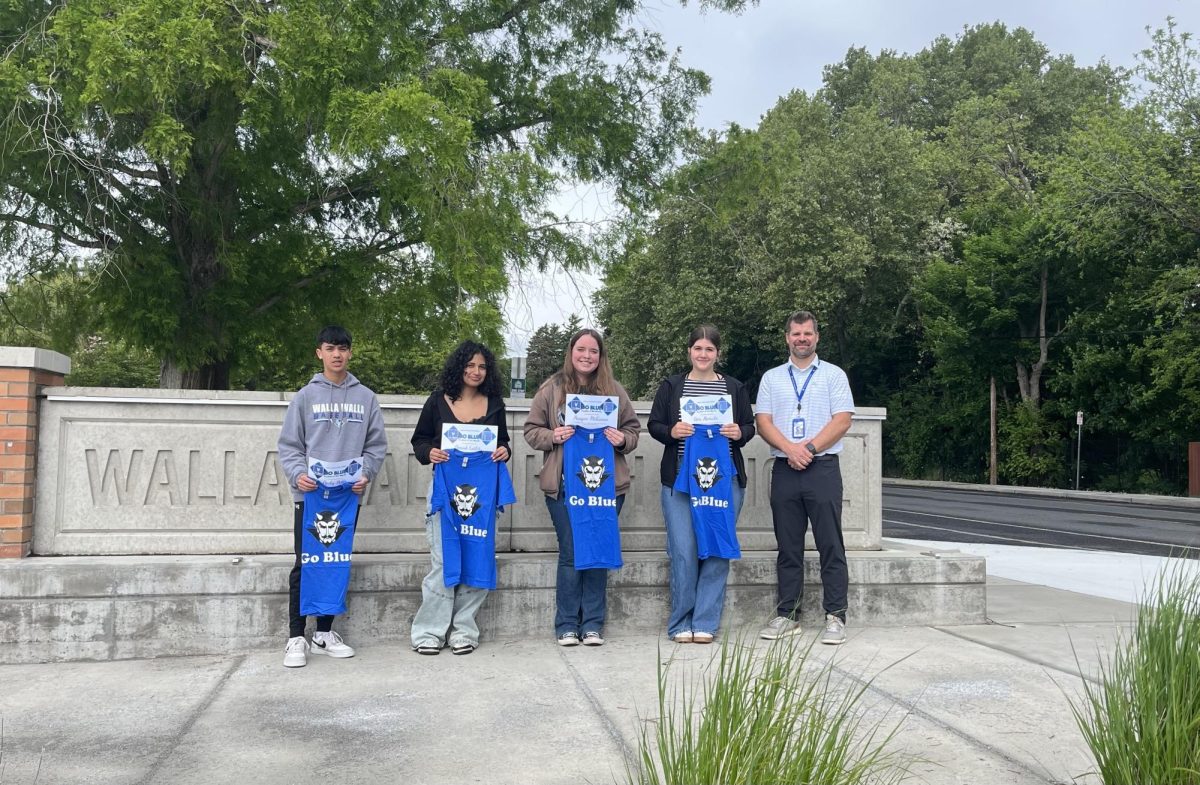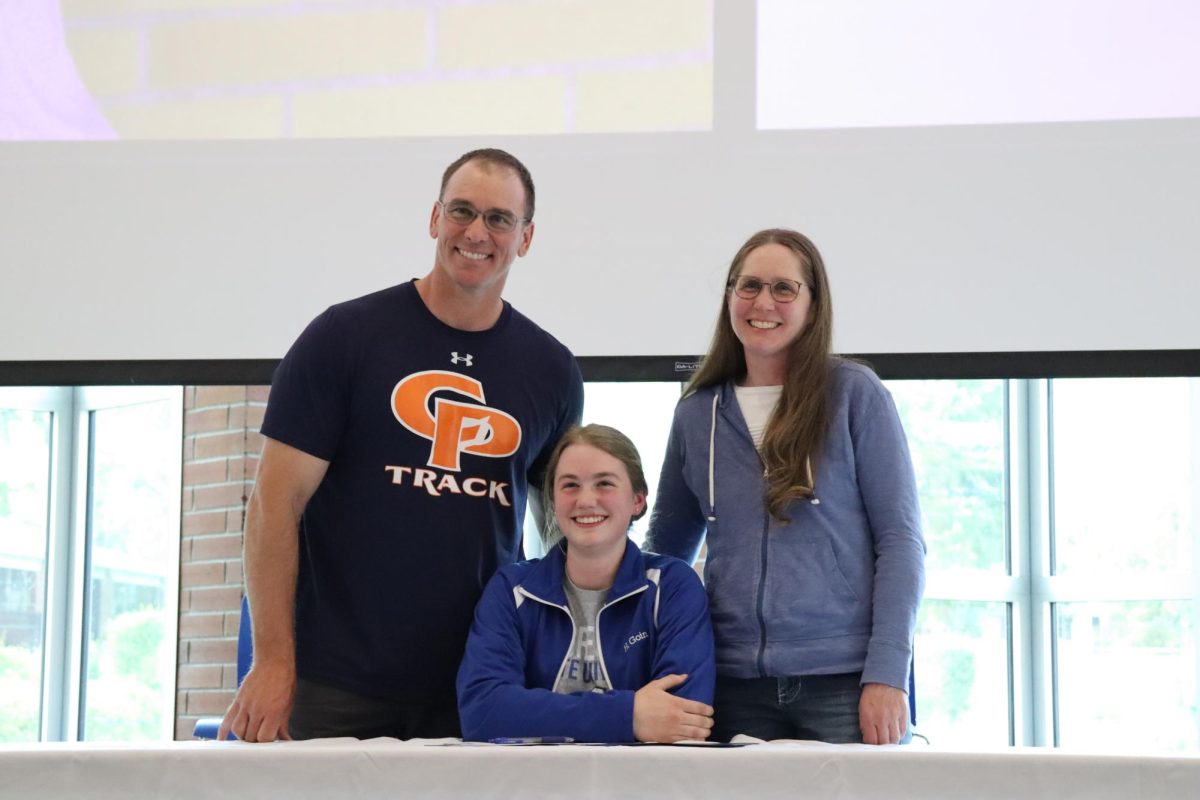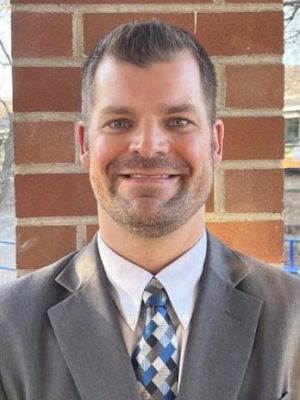
Avari Yane
October, 2024
Have you ever taken the time to venerate your school principal and show them the appreciation that often goes unnoticed? National Principals Month is recognized each October across the United States, which provides an opportunity for students and staff to honor their principals and show them the appreciation they deserve. Unlike School Principals’ Day, celebrated on May 1st, principals have a month’s worth of acknowledgment for their dedication, duties, and discipline in school and education management.
On Thursday, October 10th, I met with Walla Walla High School principal, John Schumacher, to discuss his impact as principal and what this month means to him. I introduced myself, told him I’m from the WA-HI journal, and explained the purpose of the interview.
After a fleeting mix-up regarding other students who scheduled appointments with Mr. Schumacher, I asked my first question, under the category of questions pertaining to National Principals’ Month specifically: “How do you think principals around the world should be honored?”
“Mmmm…” Mr. Schumacher paused to collect his thoughts; his eyes wandered across the room while he deliberated his answer. I don’t blame him for the delayed response, some of the questions I had collected were deep and insightful.
After a moment, Mr. Schumacher responded: “I think it’s always nice to get notes from students or staff,” after some filler details, he emphasized: “…Just that recognition that the work we’re doing is making an impact.”
Next, I proceeded to ask: “What are a couple of ‘thank you’s’ you’ve received from staff and students during National Principals’ Month?”
After a short pause, Mr. Schumacher responded: “I’ve received a couple ‘thank you’ cards from staff just thanking me for the help I’ve provided or guidance and some from students just being appreciated for coming into classrooms.” To elaborate, Mr. Schumacher explained that he’ll come into classrooms throughout the day to check up on students and promote his involvement in the school as principal.
Typing away, I smiled sweetly, then asked, “What are some responsibilities of principals that often go unnoticed?”
“Mmmm…” I could tell that Mr. Schumacher was flabbergasted as he began to form a response. To summarize his reply, he described three aspects, the first being the management side of the principal role. The managerial aspect solidifies that the school is operating as it should; similarly, the second fundamental – the instructional leadership side – keeps staff informed and makes sure that it runs smoothly. Finally, there is a political aspect of being a principal, which I found intriguing. The political side ensures that positive information is dispersed and ensures that the community knows the plans of WA-HI; he further deliberated that the community’s understanding is crucial because the media can warp reality and he doesn’t want a false or negative perception to be portrayed.
Finally, to conclude my list of questions under the section relating to National Principals’ Month, I inquired: “What does National Principals’ Month mean to you?”
Mr. Schumacher illustrated that typically, people don’t go into this job for admiration. Further, he stated that when things go well, it’s common to deflect that exaltation to others, but when mess ups happen, he takes ownership and responsibility for their mistakes. To wrap up this question, he remarked: “I didn’t go into this job to receive a lot of praise.”
For the second part of the interview, I had a layout of questions relative to Mr. Schumacher’s personal experience as principal of WA-HI.
“What is the most rewarding part of being principal of WA-HI?” I offered.
Keeping it short and sweet, he responded: “Working with our students.”
Next on the list, I queried: “What was your first year like as principal?”
I listened to his reply, hurriedly typing, not to miss a word. “Anything in a first year – I learned a ton.” Mr. Schumacher went on to say that he learned about the traditions, systems, and past culture of WA-HI.
“What are your plans to make a difference and make WA-HI a better place?”
Getting straight to the point, Mr. Schumacher replied: “Continue to provide opportunities to allow students, families, and staff to make decisions and get inputs from all stakeholders.” He went on to say that he also wants to evaluate what’s going well and what isn’t, such as students who aren’t doing well academically.
“What is your biggest challenge as principal?” I inquired, prepared to speedily type what he said.
“Biggest challenge is anything difficult.” In short, Mr. Schumacher described these difficulties as creating change, providing opportunities for stakeholders to give their input, sharing concerns and questions, and slowing down and not trying to go too fast. Essentially, he shared the stresses of being overwhelmed with work and needs to take the time to relax and settle into the comfort of enjoying the moment.
On the flip side, I then asked: “What is your biggest achievement as principal?”
“I think bringing back Blue Devil Time is one of my biggest achievements and bringing college into high school so increasing opportunities for students to earn college credits in high school and not just in AP.”
For context, Blue Devil Time provides the opportunity for students to catch up on homework, missing assignments, and get help from teachers in other classes; Blue Devil Time branches out of third period and is a thirty-minute work session. Additionally, AP – Advanced Placement – classes allow students to take a test at the end of the year and give them the chance to earn college credit if they pass with a score of 3 or higher; the max score is 5. Mr. Schumacher added to this option by partnering with Eastern Washington University.
After that, I asked: “How do you support teachers in their professional development?”
“Try to get into classrooms as much as possible and provide feedback to increase learning; the more feedback we can give, the more teachers can grow.”
“What goals do you have for WA-HI this year?”
“I would say a couple goals we have as a building – school improvement plan: increasing literacy and increasing our freshman on-track rate.”
I was compelled and curious about the freshman on-track rate concept. “Could you please elaborate on the freshman on-track rate?”
Mr. Schumacher expounded that in order for freshmen to be on track, they can’t fail any classes; 60-70% of freshmen have been on track so far, but he wants to increase that demographic by 10%.
After complimenting him on his use of statistics – which my analytic brain was delighted to hear – I presented Mr. Schumacher with my final question of the interview: “What does a typical day look like for you as principal?”
“Every day is different, which I really enjoy. There’s always some meetings and I try to make sure I’m in some classrooms as much as possible.” Finally, he stated that he never knows when something might come up, which makes his job fun.
I wrapped up typing my notes, quickly finalizing the details so as not to create an awkward pause. I thanked Principal Schumacher for the time he set aside out of his day to be interviewed and honored him in recognition of National Principals’ Month.
As I reflect on this article, and this month, I can’t help but wonder what it’s like for principals around the city – across the nation – during National Principals’ Month, and life in general. How many principals are getting recognized for doing their job well? What can we do to spread positivity and encouragement to principals who make it their mission to create an academic atmosphere of success for us? If you are a student or staff member, I highly recommend stopping by to thank your principal for the work he/she does. If you are a parent, grandparent, aunt, uncle, employer, employee, etc., how do you think principals should be appreciated? To close, let’s show respect and honor to everyone today, regardless if they’re a principal or if it’s National Principals’ Month.

